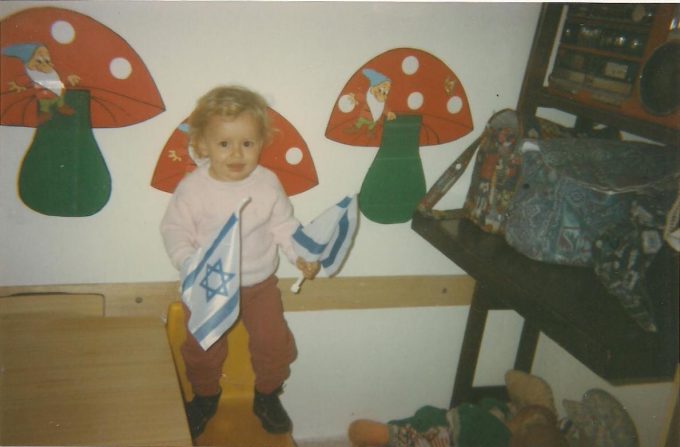Shame, shame, shame

There is truly something magical about sitting at a table abounding with pickled herring, borscht, and lots of mayonnaise-based salads and listening to anecdotes about Soviet communism and anti-Semitism, while at the same time checking Beyoncé’s latest Instagram posts. I hardly thought I was the only one drowning out praises of conservative policy with “Queen B,” but I never imagined there were thousands.
When Trump was elected, I felt disheartened. My immediate family shared my pain, but these conversations were off limits at Novy God, the Russian New Year celebration, to avoid clashes. In early 2017, I was invited by a friend to be part of a private Facebook group called “Pozor’s Anonymous.” In Russian, pozor means shame or disgrace. It is a word my mom would often use to explain the state of my messy room. This group was filled with hundreds of people sharing their stories about how they are pozor to their Russian identity. Some of them were funny (women shared stories of sitting on non-carpeted floors, for example, which causes infertility, according to Soviet-grandmother science), but most were focused on deeper, generational divides. Like me, these were people who felt alienated by their culture and wanted to feel connected to their Russian and Jewish roots, but didn’t want to identify with the hateful speech they heard from some of their family’s social circles.
There are several Soviet identities represented in the group: refugees and immigrants of the Soviet era, post-Soviet immigrants, “half-generations” (those who immigrated at a young age), first-generation immigrants, and most of them identify as Jewish. The paths leading us to this page were different, but we all share the same pain and confusion of our friends and family identifying with policies we find dangerous. We have found a safe space to talk about matters that our community would describe as “un-Russian” or “un-Jewish”, ultimate pozor behavior. Now, as a part of this group, I see that I am not alone. For me and many others, it wasn’t until we left home that we realized we were allowed to show disappointment with Israel. Personally, this wasn’t because my parents ever told me not to, but rather because there is a silent rule in my community: you just do not criticize Israel. For those of us who went to Hebrew school, participated in Birthright, or visited Israel, we would always hear about the rightful people of Israel. At home we heard the horrors and fears of the USSR, with stories of hunger, censorship, and paranoia. While Soviet immigrant waves widely vary in levels of animosity toward the home they left, there was still no doubt where loyalties are meant to stand.
Some Soviet immigrants feel as though Trump can provide the force that is needed to tackle the “evils” of socialism, Muslims, and economic insecurity. The U.S. relationship with Israel is crucial and they believe that Trump’s friendship with Netanyahu outweighs any flaws Trump has. It is important to note that this tension spans back far before Trump became president. This contention is felt among Russian immigrants and their children in Israel and even in Moscow itself. It is hard to find the right way to tell a Russian refugee who starved under communism that you find universal health care and investment in welfare important. How do you tell a person who was assaulted in school for being Jewish that you do not support the government that they believe prioritizes Israeli security? At the same time, I wonder how a person who fled religious persecution in the Soviet Union and settled as a refugee in the U.S. can support Trump’s immigration policy. I am not yet able to answer these questions. It has been hard for me to trace their narrative and use it to explain their beliefs in comparison with what are considered the motivations of a native-born American Trump voter. Their experiences, their pain, their concerns are valid. Finding a balance between acknowledging these realities and actualizing a progressive agenda is an uphill battle.
As wary as conservative Russians make me, I hope this stands as a reminder to others and myself that Russian-Americans are, like other immigrant groups, multidimensional. They arrived in the United States during different times in the Soviet or post-Soviet era and their relationships with their home country are complex. As a Russian-American-Jewish woman and a proud pozor, I hope that during this heightening of Cold War rhetoric, we remember to distinguish the Russian people from the Russian government.


Comments 4
Zhenya
March 13, 2017Love this! I'm also a Russian-speaking Jewish American, and I believe that the United States is already great -- especially because it's a country of immigrants.
Harry James
July 14, 2020Polina Zvavitch, I just want to join this Facebook group which you are currently talking about. You have to read reviews on edubirdie.org website before hiring person for your assignment help. I am mainly interested in reading the pozor stories of Russian individuals that are present in this group.
suka chu
September 23, 2020Your all-in-this mode is really difficult, everyone may have no trouble realizing it, Thank you very much. driving directions
enney Beverly
October 25, 2020Every girl tries to upload a photo which she likes most of all. By picture, you can recognize her preferences and tastes. Women international dating sites for marriage who are ready for family life usually post photos, which show their femininity and beauty. Mail order wives don’t need colorful makeup and frank outfit to look amazing. It is more about girls who want to meet a person for physical pleasure.